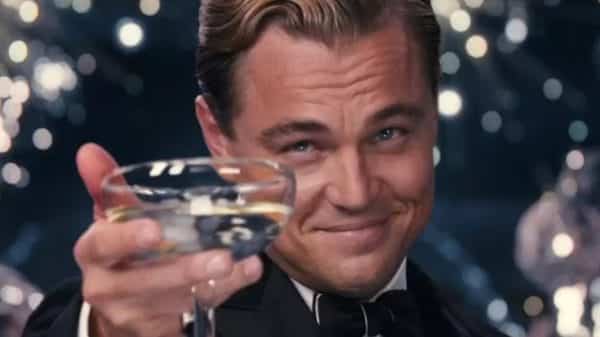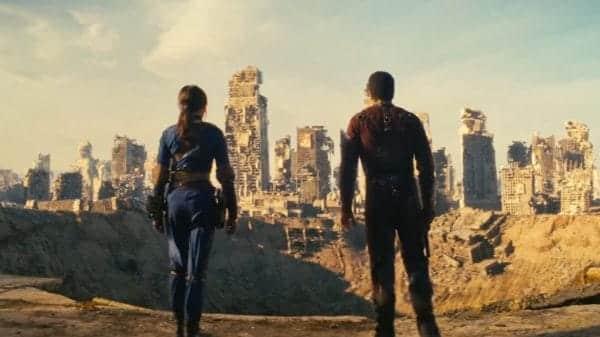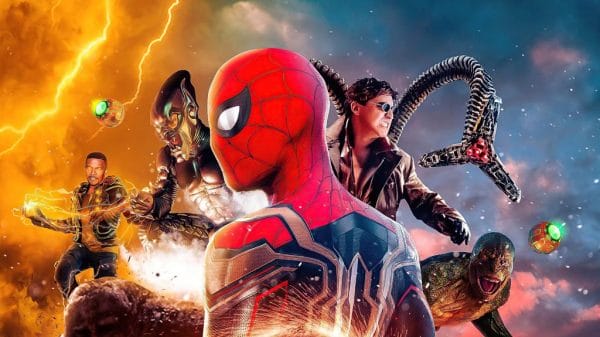With the growth of modern pop culture, fandoms and media outlets have become awfully comfortable, subjecting filmmakers to unchecked toxicity. Regardless of the quality of their work, directors like George Lucas, Zack Snyder and Rian Johnson have become targets and scapegoats for bad behavior.
“X ruined Y.” When directors set out to make a movie, it’s a sad fact that they are putting themselves in the crosshairs. The film landscape of the 21st century, along with all its wonders in modern filmmaking, has opened the floodgates for a wave of toxic and bad-faith arguments from audiences.
Social media, or online media in general, didn’t help matters. In fact, journalistic outlets devoted to covering film have, in many ways, made the problem much worse. Should a filmmaker fail to live up to audience expectations, or fail to pander to certain viewers’ biases, they become public enemy #1. As a result, any and all criticism of them or their work is deemed acceptable even if that criticism is toxic, dishonest, or just outright cruel.
Three cases of this modern trend are directors George Lucas and Rian Johnson, of the Star Wars franchise, and Zack Snyder, known for his work on the DC Extended Universe.
All directors I admire, to this day.
George Lucas
Lucas needs no introduction. In fact, any discussion of the juggernaut franchise that is Star Wars can’t be complete without him. Of course, it’s not hard to see why. With Star Wars, Lucas and his team of fellow filmmakers created one of the most enduring and beloved film properties of all time.
However, that kind of lasting fame is a double-edged sword. Lucas had a reputation, a certain image people built of him. If he deviated from that image, there would be consequences. Sure enough, he did deviate.
Special Editions
Since the 1990s, Lucas re-released and altered his original Star Wars films several times. At times, his reasoning seemed understandable. Modern special effects and editing technology made it possible for him to edit the films to fit his vision. In essence, Lucas was rather like an author going back and releasing a new draft of his book.
However, many fans were displeased with several of these changes. See the increasingly contentious, and often hilarious, “Han shot first” debacle.
The Prequels
Things only heated up with Lucas’s direction and writing of the Prequel Trilogy, a trio of films which fleshed out the backstory of his Original Trilogy. Though the films were certainly an achievement in style, worldbuilding, and mythology, the sometimes stilted direction of its cast and often cringe-worthy scripts made the trilogy quite polarizing.
Because he was the man behind the camera, Lucas caught no small degree of flack. Many fans greeted his second trilogy with mockery or forswore it altogether. Lucas, as a director in the public eye, faced exposure to all of this. Fame proved fickle and came with a serious cost.
This toxicity wasn’t just limited to Lucas himself, of course. Actors Ahmed Best and Jake Lloyd came out of the trilogy facing relentless bullying just for their association with Lucas’s work.
Media outlets didn’t exactly help. Outlets like Red Letter Media, with a snarky review series like Mr. Plinkett, contributed to the problem. Perhaps not intentionally, as they never endorsed harassment of Lucas or his cast. But media engaging in mockery disguised as reviews helped validate the idea that mockery is an acceptable and perfectly legitimate form of criticism.
Vindication
It was perhaps this kind of public pressure and scrutiny that made Lucas’s decision to sell Star Wars an easy one. While it might not have been the only reason, it surely played a role.
Interestingly enough, the court of public opinion also proved quite fickle in the years since. Between more nuanced analysis of the Prequels, expanded material like Star Wars: The Clone Wars fleshing out his prequels, and the very nature of nostalgia, many fans have come to appreciate Lucas’s hard work and the genuine passion he poured into his films, regardless of the films’ perceived quality.
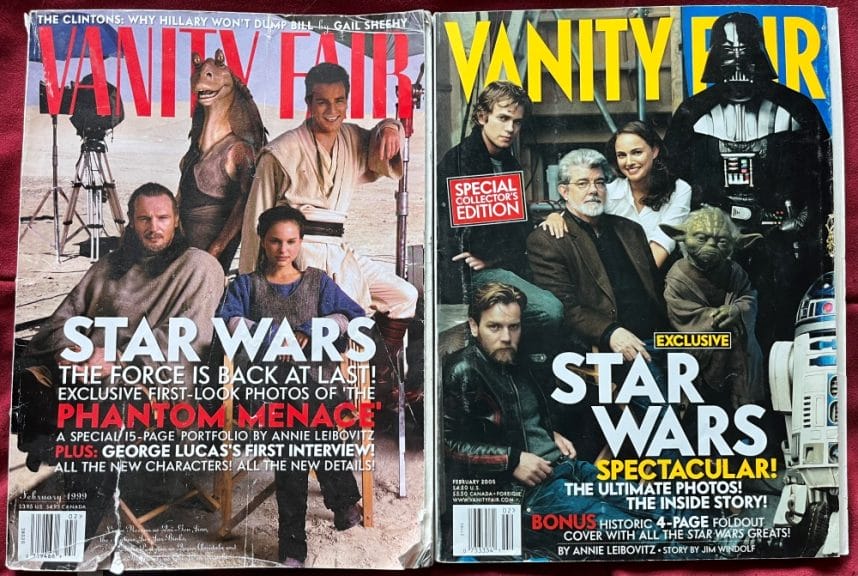
Truth be told, it shouldn’t matter whether or not you think the movies were good or bad. No one, whether critic or casual viewer, should have the right to treat Lucas or his cast like they spit on one’s childhood, or to drive them away from the franchise altogether.
Coming from a man who grew up amidst the Prequels’ release, I say this; they didn’t ruin a thing. The Original Trilogy remains a classic, even today. And while their scripts are cheesy and the CGI a bit excessive, the Prequels were made with real heart. It would do Hollywood some good to remember how much difference a little heart can make in the franchise-driven world of film today.
Sadly, the toxic Star Wars drama would not end with the Prequels, or with Lucas’s departure.
Rian Johnson
With the release of 2015’s Star Wars: The Force Awakens, expectations were high for director Rian Johnson’s middle chapter in the new Sequel Trilogy. Though The Force Awakens was a success both critically and financially, there were enough questions and concerns that made Johnson’s entry, The Last Jedi, rather make-it-or-break-it for many fans.
To say his film was controversial would be like saying the sky is blue. While critics showered praise upon The Last Jedi for its subversive approach to the Star Wars story, fans started fighting over it right out of the gate. Opinions were divided sharply so. While some called the story bold and creative, others called it pretentious and needlessly deconstructive.
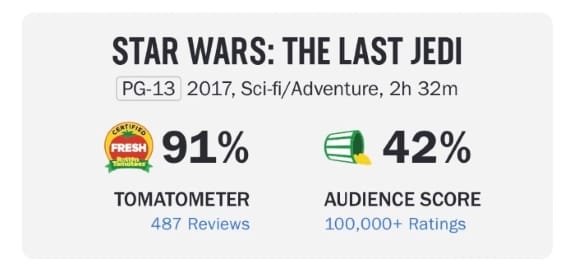
To this day, the audience metric on Rotten Tomatoes is nearly split down the middle. However, not all the discussion over the movie was focused on just the movie itself. History, it seemed, had repeated itself. Many Star Wars fans were less concerned with being fans and more with finding something to get angry at.
Director’s Reputation
Unfortunately, like Lucas and friends before him, Johnson faced a wave of ugly, often outright hateful criticism.
It was hard to separate objective discussion of the movie itself from either defending or attacking Johnson and company. Now, that’s not to say Johnson should be exempt from any discussions on The Last Jedi. He held a large degree of creative control, both directing the movie and writing much of it as well. So if one didn’t enjoy the film simply on a storytelling level, it was easy to direct one’s frustrations at Johnson alone.
However, the sheer depth of hatred people decided to project was staggering. Even years after the fact, it’s hard to go anywhere in the Star Wars internet sphere without people throwing nicknames like “Ruin Johnson” or “Roundhead Johnson”, accusing him of spoiling the entire franchise or being a talentless hack. And that’s to say nothing of the cruel treatment his cast received, such as Kelly Marie Tran.
Which he’s not. Even if one doesn’t enjoy Johnson’s Star Wars, it’s not hard to find other projects that are more unanimously accepted. The Knives Out series, for example. With few exceptions, directors shouldn’t have their entire careers written off just for one contentious film.
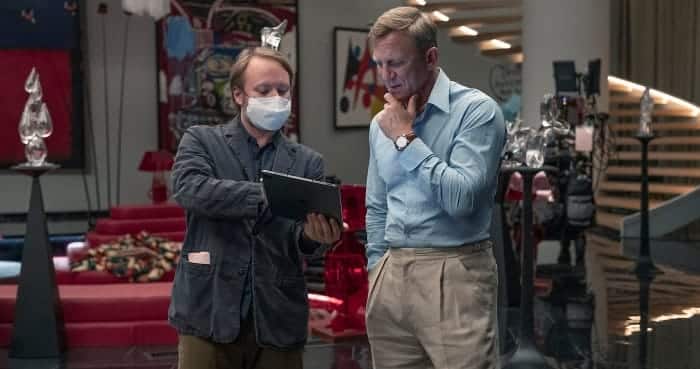
The Blame Game
Furthermore, it’s not quite fair that Johnson bear all the blame for the divisive decisions made in the Sequel Trilogy. Creative control or not, Johnson still had to work in certain parameters arranged by Disney and Lucasfilm, parameters which any director would have difficulty navigating.
-A hard reset to the “Rebels vs. Empire” formula, effectively undoing the classic heroes’ victory at the end of the Original Trilogy.
-A lack of a reunion between the Original Trilogy’s heroes.
Those two hurdles alone were already set in stone well before Johnson started filming. Worse, mismanagement at the corporate level didn’t stop after his film’s release.
The following entry, The Rise of Skywalker, caught some significant flack amongst the fanbase for both doubling down on the Sequels’ issue with worldbuilding while also feeling like a knee-jerk attempt to backtrack on Johnson’s more controversial decisions.
Ruined or Not?
A common thread coming out of Johnson’s divisive film was this sentiment among disappointed fans that Star Wars was ruined. The saga couldn’t ever be fixed, some said.
While the Sequel era indeed remained divisive, various projects came in its wake, which proved that Johnson had not, in fact, ruined the series as a whole. For instance, Disney+’s The Mandalorian was a success right out the door. The near-unanimously positive reaction to its second season finale proved as much, reminding fans that at the end of the day, we all still love Star Wars. So perhaps we should just be content to enjoy the parts that speak to us and leave aside those that don’t. No need to keep acting like Rian Johnson killed your childhood.
Zack Snyder
On the note of supposed ruined childhoods comes the last exhibit. An exhibit that strikes a very personal chord for me. That being Zack Snyder and the treatment he got from bloggers, critics, and video essayists this past decade.
…Oh, you’re surprised I’m not just calling Snyder and his fans toxic?
Well, contrary to what much of film Twitter would like to say, the toxicity surrounding Snyder’s filmography started on the other end, with people who decided for whatever reason they just didn’t like him and would remind people of that every chance they got.
Dogpiling
In the early 2010s, Snyder had the unenviable task of helming the first entry in Warner Bros. DC Extended Universe, a live-action franchise adapting the works of DC Comics. In essence, it is a counter to Marvel Comics’ live-action franchise, which by this point had already taken off.
Snyder’s first outing, the Superman film Man of Steel, was divisive amongst critics and certain Superman fans. Many had issues with its more serious, sci-fi heavy tone, and focus on a more quiet and uncertain take on the character of Superman. Certain media outlets with a major nerd following, such as Screen Junkies and Channel Awesome, saw blood in the water and dogpiled on.
While Man of Steel was successful enough financially and got enough buzz from audiences to warrant sequels, these particular outlets wouldn’t rest until they’d made the case that Snyder was just the worst thing to ever happen to Superman on film.
As if the disasters that were Superman III and IV, and the painfully boring Superman Returns, hadn’t even happened.
The increasingly controversial sequel, Batman v Superman, only invited more vitriol. Despite my own mixed feelings on Batman v Superman, I never quite understood how badly people were determined to hate not just the movie but the man who made it as well.
The Justice League Mess
In 2017, Snyder suffered a tragic family loss, forcing him to step away from the production of his third DC outing, Justice League. The ensuing mix of incompetence and mismanagement that resulted in the film’s theatrical release is well-known among nerd circles and film buffs by now. Warner Bros. attempted to pivot hard from Snyder’s direction by way of a lighter, more humorous tone and the contributions of step-in director Joss Whedon.
Before the 2017 cut’s release, I couldn’t help but notice people were actively celebrating Snyder’s departure. Regardless of his tragic circumstances, all they cared about was a director they hated going away. It wasn’t just toxic anymore, it was cruel.
Sadly, or amusingly, depending on how you look at it, the theatrical cut of Justice League proved an utter failure. Then, years later, the release of Snyder’s original cut of Justice League struck that more optimistic tone people asked for, all without needing to, say, cover up a man’s facial hair with CGI.
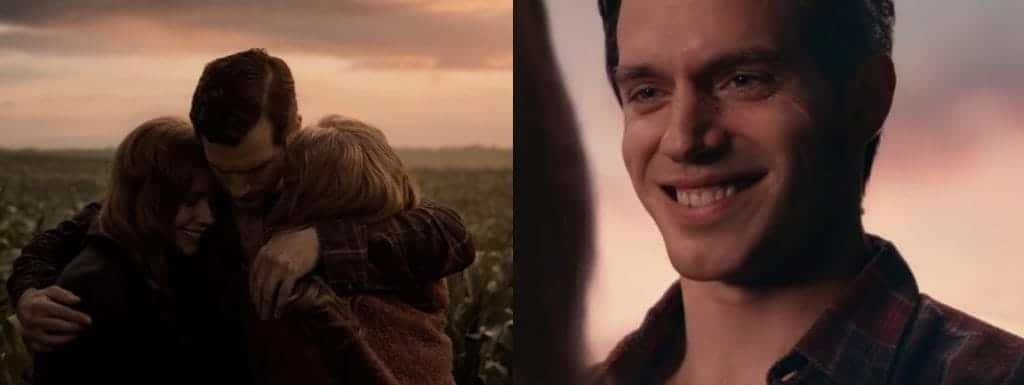
In caving to toxic fandom and all their complaints against Snyder’s films, however big or small, Warner Bros. shot themselves in the foot and set in motion the slow death of the DCEU.
How Toxicity Rewrites the Narrative
Of course, if you ask any number of fans or critics/bloggers, they would tell you with a straight face that it’s all Snyder’s fault. They say the failure of the DCEU can be pinned on him and just him, even though he hasn’t been an active participant in DC films for seven years.
But then, bad faith takes are to be expected with Snyder films.
Now, what do I mean by bad faith? Simply put, it means that certain people paint Snyder’s work in the most negative light possible for no other reason than it’s trendy to do so. Whether or not their criticisms hold water. It won’t matter.
Take Man of Steel and Snyder’s DC films as a whole. What were some of the biggest criticisms by media outlets like Screen Junkies or Channel Awesome?
- “Snyder’s Superman isn’t heroic; he doesn’t care about saving anyone.”
- “These movies have far-right, fascist coding.”
- “Snyder’s films are grimdark/joyless.”
Not a single one of these is true. Yet to this day, they’re still touted. And there are plenty more.
When I say people engage in Snyder’s films in bad faith, I’m saying people have no interest in engaging them honestly. They didn’t like his movies, so they decided they were entitled to say literally anything because “Snyder bad”.
Worse, any resulting defensiveness or toxicity from Snyder’s own fanbase in recent years receives a great deal of exposure. The “Snyder cult” is written off as losers at best, even if many are content to just enjoy his movies and defend them when they feel like it.
Meanwhile, anyone who targets Snyder with bad-faith critiques will likely get a free pass. Even though, at the risk of sounding childish, they started the whole thing.
How terribly, as Snyder’s Watchmen film would put it…
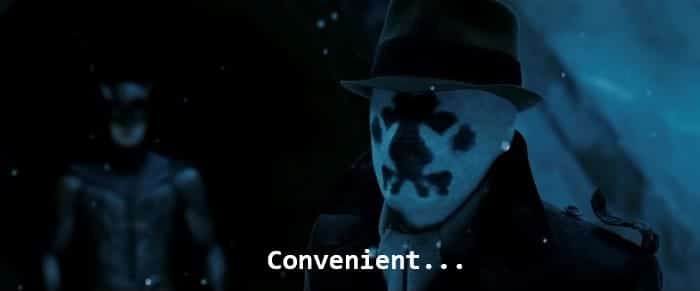
What to do?
As much as it pains me to say, toxic fandom won’t go anywhere for a long time. It will persist so long as fans and media embrace the kind of knee-jerk, trendy negativity that stems from large groups of people deciding something is bad and the people who made it should feel bad.
But there are ways to curb toxicity. Simply focus on what you enjoy and ignore what you don’t. If you don’t like a media product, try to explain why without getting so personal.
At the end of the day, movies are art. Directors, the artists behind them, deserve to be heard out and receive a fair assessment. If you don’t like what “Ruin Johnson” or “Hack Snyder” did with your favorite properties, that’s okay. But don’t think that gives you the right to start name-calling or making things up. That doesn’t make you a fan.
It just makes you a bully.







